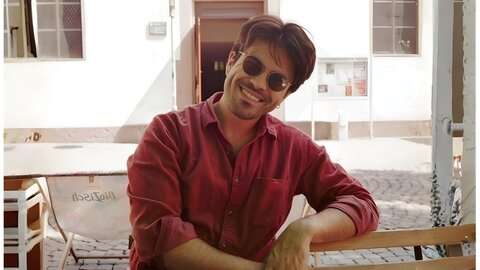Sustainable developments

In May 2015, I took up a research post as Erwin-Schrödinger Fellow at the Centre for Science and Policy (CSaP) of the University of Cambridge. Upon completing my thesis in June 2013, I had applied there for a post-doc position and met the research team at a hearing to which I was invited. As the runner-up I did not obtain the position applied for, but the University said they could nevertheless offer me a research post provided my Erwin-Schrödinger Grant was approved. Ever since my first visit to Cambridge at the age of thirteen I had been dreaming of doing research there one day.
The conflict zone of “environmental knowledge”
Based on the example of the World Biodiversity Council IPBES (Intergovernmental Science-Policy Platform on Biodiversity and Ecosystem Services), my thesis explored the conditions underlying the emergence of international institutions such as IPBES at the interface between science and environmental policy. My current project focuses on science conflicts occurring within such institutions – conflicts which arise when data relating to the solution of environmental issues, such as the preservation of biodiversity, are translated into operational and policy-relevant knowledge.
Cambridge traditional and modern
More than a year has passed since I started my fellowship, and it has been filled with a great variety of impressions. I work in an office not far from the Fitzwilliam Museum whose facade with its columns and reclining lions seems a little incongruous compared to the rest of Cambridge and its mediaeval appearance. With a population of more than 120,000, Cambridge seems small and its centre crowded. The 31 colleges, the oldest of which were established in the 13th century, dominate the urban environment.
Another prominent feature is the River Cam which gave the town its name along with the bridge that crosses it. The colleges’ and city clubs’ oarsmen often start their rowing training at sunrise, chasing off the swans which, apart from the Royal Family, only the fellows of St John’s College are still legally entitled to eat. In this place, the link between tradition and innovation is just as pervasive as the passion for top intellectual and physical performance, freedom and self-determination. Paternalism can be found in individuals, competition lurks between the lines.
Arrived
By now I have become firmly ensconced in my department. At a first interview with the head of the Centre, he told me that he couldn’t yet tell whether our lines of thought would be too similar or too divergent. Meanwhile I have started to organise a bimonthly task force, and I have been able to build contacts throughout the University. Working at the University of Cambridge enormously facilitates international networking. I cooperate closely with a team from the Zoology Department, and I have established contact with a researcher in Cardiff with whom I’m organising both a publication and a joint workshop.
In the research flow
The bulk of my field research has already been completed. I attended the fourth session of the World Biodiversity Council in Kuala Lumpur and, in Leipzig, a meeting of GEO-BON, an organisation striving to promote the integration of different approaches in biodiversity research for the development of policy-relevant knowledge. Together with two colleagues I published a correspondence on the role of the social sciences in Nature at the beginning of the year, an experience just as unique as being able to live and do research here in Cambridge.
Body, mind and freedom
Almost every morning sees me running along the River Cam, and several times a week I train for the Bumps, one of the most important rowing events of the year. I have grown accustomed to the changeable weather, and I have found my own strategy for coping with the early-morning bicycle congestion in the town’s narrow lanes. I have learned to appreciate straightforward language that is readily understandable: wording that would be frowned upon as intellectually inferior on the continent is regarded here as a prerequisite for dialogue and acceptance. The University recognizes individual researchers and offers them an environment that is motivating and exacting without being repressive.





